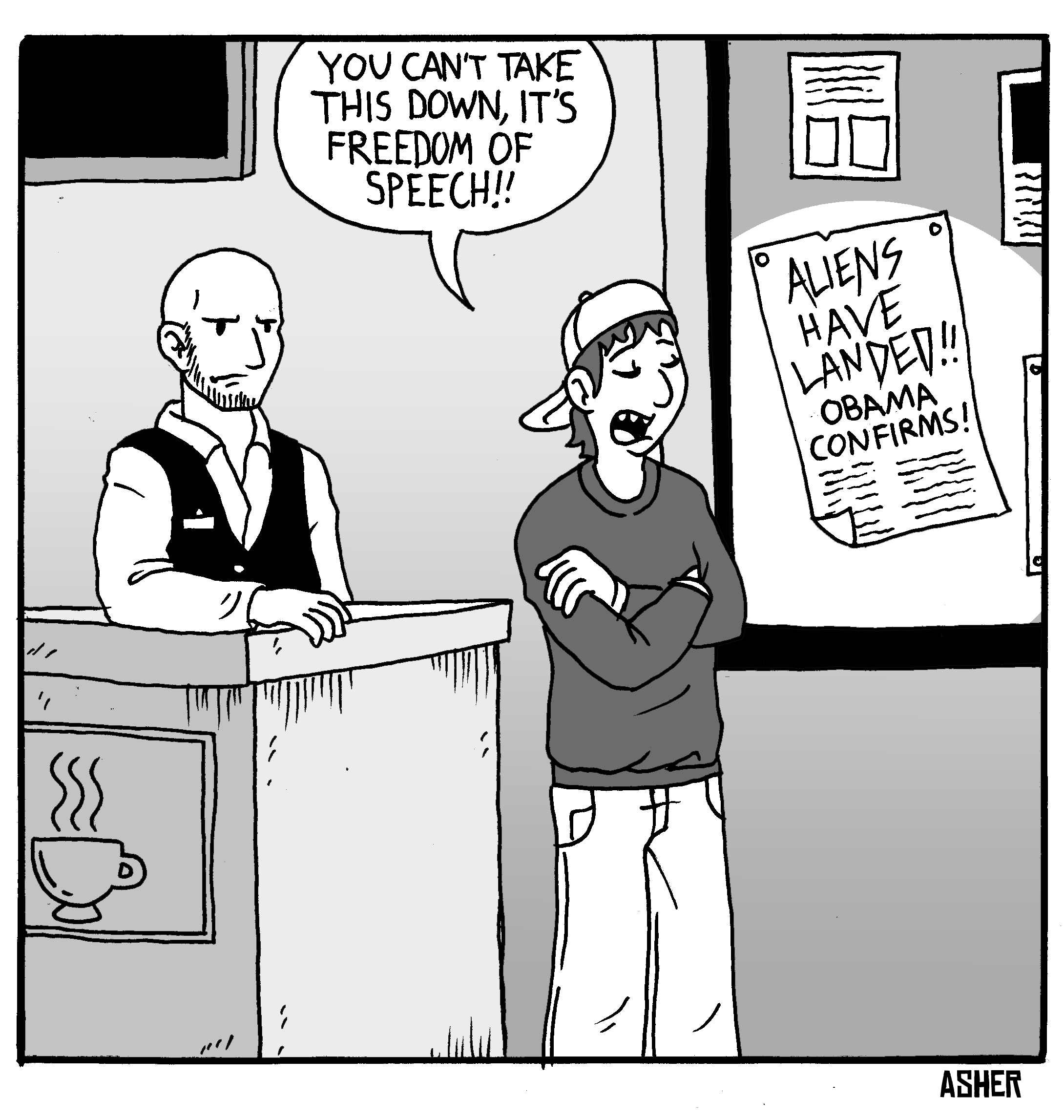
One of the most popular topics for false news is politics. It’s almost impossible to scroll down a timeline without seeing someone post an article saying President Barack Obama is a secret Muslim, or Ted Cruz wants to deport you.
There are also those hoax stories telling harrowing tales of celebrity deaths, when really the celebrity is alive and well in his or her home.
Some people actually believe these hoax stories, panicking that their favorite movie star has perished. It’s gotten to the point that some people scroll by these type stories or read them with skeptical scrutiny. When someone actually does die or if Obama really is a secret Muslim, it would take some time to discover the truth.
Thankfully, Facebook has made a positive move to put an end to hoax stories. Facebook users have the option of reporting a story as a hoax or misleading news. Facebook does not remove these stories from the site, but it does flag stories with enough negative reports so new readers will know it was reported as a hoax. In addition, when enough users decide to delete a post from their timeline – whether spam or misleading news – Facebook will automatically put a limit to the story’s distribution.
Facebook’s update should be considered a service to the people who use its site. It’s easy to trick unsuspecting Facebook surfers, especially if the article is convincing enough. With this new feature, Facebook users can support and help each other by reporting false stories.
Some opponents of the new policy cried that Facebook was engaging in censorship. Facebook is a private company. While the basis of the company is a public forum, it already has the ability to control the content. Facebook already filters and deletes content it deems explicit or that goes against its policies. Facebook is not an open forum for people to write and post anything they like – no matter what people think. This is not an issue of free speech either – Facebook, as a private company, has the right to filter anything it wishes.
Other people complained that the policy would put an end to satirical pieces that people actually enjoy reading. In response, Facebook officials said satirical pieces are rarely reported anyway. Because this policy relies on the information of several users, satirical pieces will be mostly unaffected.
Another concern was that frequent publishers to Facebook would lose money when their stories are no longer featured. However, as the Facebook policy states, “The vast majority of publishers on Facebook will not be impacted by this update. A small set of publishers who are frequently posting hoaxes and scams will see their distribution decrease.”
Facebook officials thoroughly researched this policy before implementing it. It was not a split decision.
The benefits of the policy far outweigh the chance that a few frequent scammers lose business.
Facebook can be a tool for good. Most people would agree scammers and hoaxes are not good. If the creators can do anything to make Facebook a safer and more prosperous network for all, they have every right to make it so.






